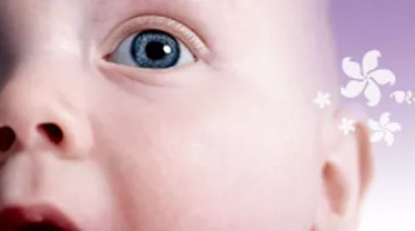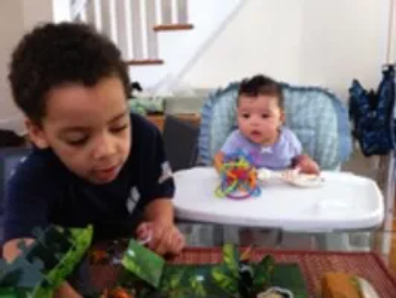Developmental Responsibility: A New Social Standard
by Steven Merahn, MD FAAP

The map by which children decipher the world around them, understand their experience and determine their drives and behavior is drawn from a subconscious framework that is built through developmental interactions with the world.
Developmental interactions with the highest degree of intimacy and influence – at all ages but especially during early childhood – have traditionally been at the ‘family-level’, a boundary typically defined by either a) biological relatedness, b) externally-validated commitment to the child’s well-being (such as an ‘auntie’ who is your mothers best friend from high school) or c) professional licensure. While relatedness does not always guarantee safety, consistent and manageable sets of ‘family-level’ experiences serve to shape knowledge, attitudes and behavior, expose the child to prevailing and minority values, and configure problem-solving schema that are critical for successful childhood. The collective family-level experience, even with contradictory value systems, tends to skew towards the child’s benefit.
A successful life demands diversity of experience. However, we know that there are certain types of adverse childhood experiences that can wield long-term negative influence and disrupt the success, and even cause harm, to the person emerging from childhood.
The last decades have seen an extraordinary increase in the number and scope of ‘family-level’ relationships in children’s lives without the continuity, connectedness and integrity of a family emotional system or professional orientation towards children, factors which increase the risk of developmentally inappropriate interaction. Like the effects of second-hand cigarette smoke, persistent exposure over time to experiences which are, even inadvertently, ‘developmentally irresponsible” – meaning not grounded in values that prevail towards children’s well-being – may affect the brain silently, and not express themselves until years later when other, more complex, functions emerge.
Developmental Responsibility™ is a new standard for social responsibility to children, under which the behavior, language, strategies and policies of individuals, organizations, businesses and institutions can be benchmarked for sensitivity to developmental appropriateness and the dynamic nature of human development.
These experiences may come through exposure to unconnected adults (both within the community and via the media, such as celebrities, sports figures, or politicians) or through organized policies, positions or programs from industry, public or private organizations and government institutions.
Being ‘developmentally responsible” requires explicit sensitivity to the fact that personhood is profoundly shaped by human relationships, life experiences and other forms of interaction with the environment and broader society. It is an acknowledgement that developmentally appropriate experiences can be facilitated, and that developmentally inappropriate experiences can be prevented and avoided.
There are rights and wrongs when it comes to interactions with children and those who work with children – health professionals, educators and others -- are held to standards of developmentally appropriateness. However, to the detriment of our children, we don’t hold others to the same standards; perhaps we should.
We propose “Developmental Responsibility” as a new social standard in which the dynamic and sensitive nature of child development is a reference point in day-to-day decision-making, not just by those who interact directly with children but by society-at-large, including corporations, non-government organizations, public institutions and public figures. As a social standard, Developmental Responsibility becomes a benchmark against which behavior, language, and policy can be measured in terms of developmental appropriateness, and illustrates to everyone – families, communities, employers, government and civil society -- their specific responsibilities in the mix.
Developmental Responsibility is not just a function of how we interact with or behave towards children -- the notion of Developmental Responsibility extends to other aspects of our daily life, redefining what it means to be an employer, an elected official or even a neighbor, and creates a social compact that does not tolerate developmental irresponsibility in organizations, institutions or individuals.

Just what does developmental responsibility mean for children? It is the basis by which they will decide what they value; it is deterministic: Optimism or pessimism? Motivated or discouraged? Trusting or suspicious? Fair or prejudiced? Curious or restrained? It can define a child’s lifelong relationships with others and civil society and can be the difference between resilience and succumbing to the worst consequences to of growing up with limited means or opportunity. These issues are far more important than classic measures of intelligence and academic skill and transcend culture, ethnicity or politics.
We cannot, and should not, shield children from the all the variables, extremes and diversity of daily life. However, by accepting our Developmental Responsibility as citizens, we can have a dramatic influence on our community standards of living. With the evidence available to us, we should take the opportunity, whenever possible, to prevent developmentally inappropriate experiences by helping organizations, institutions and individuals better understand how their strategies, policies, products, programs and platforms influence the developmental experience of children across society, and use our understanding of developmental appropriateness to facilitate interactions that positively contribute to children’s growth, knowledge, attitudes and behavior.
Developmental Responsibility as a social standard provides a blueprint for action, recognizing the responsibilities associated with indirect or inadvertent interactions with children, how such interactions shape the person that emerges from childhood, and the positive, productive influence that “better children” will have on the quality of our society.

